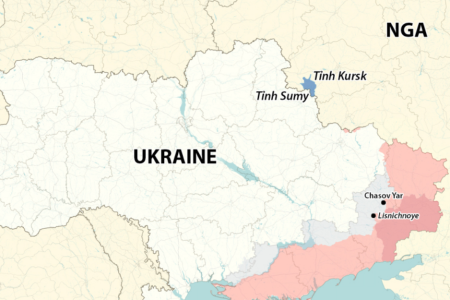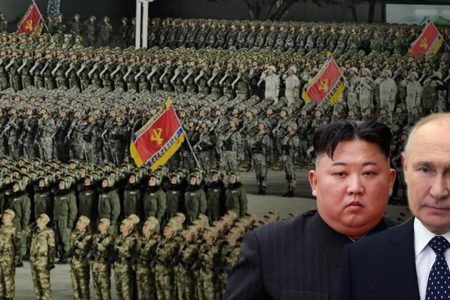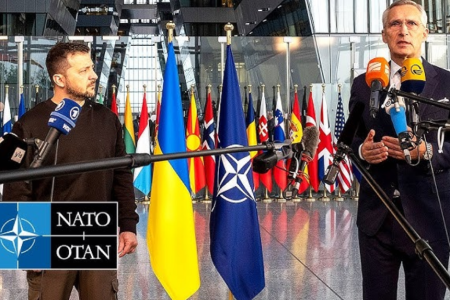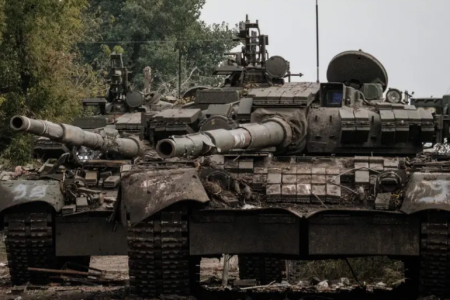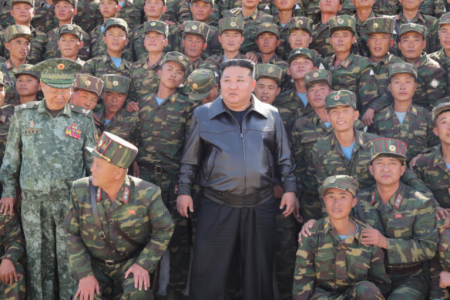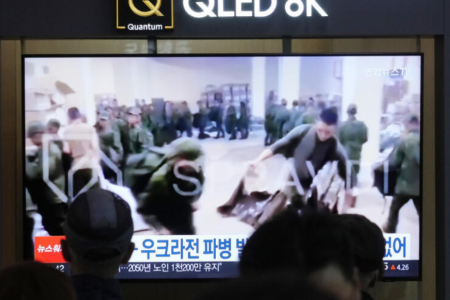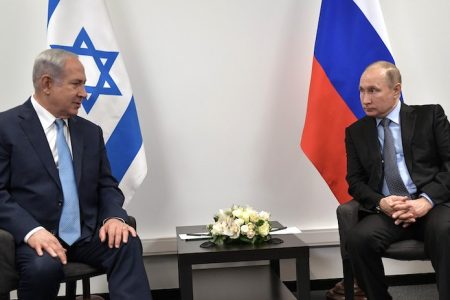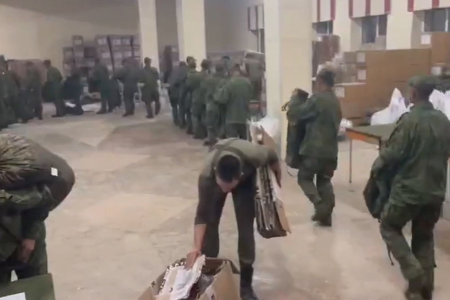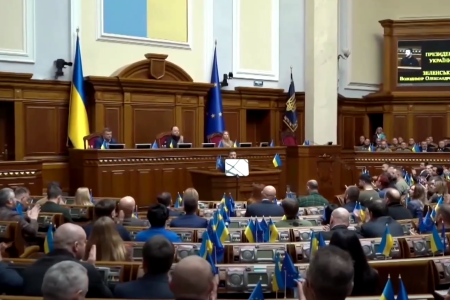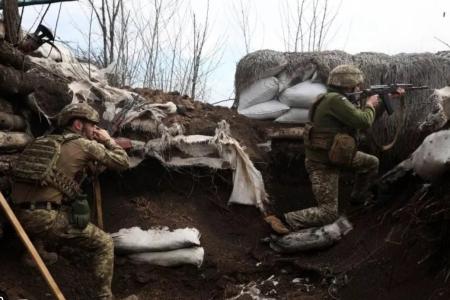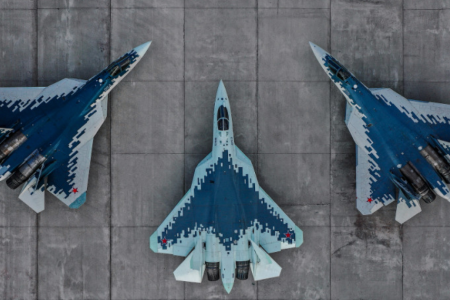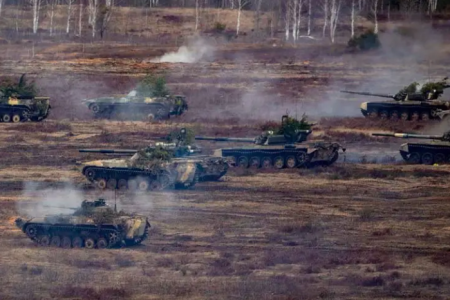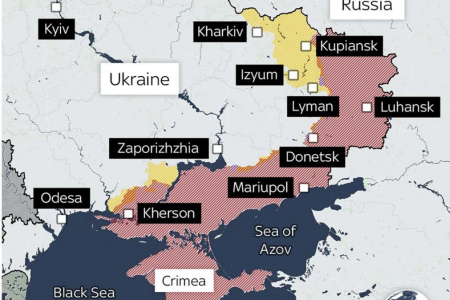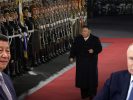
Dr. Le Thu Huong, a senior researcher of the Australian Strategic Policy Institute, commented on Vietnam-China relations in the context of increasing tensions in the East Sea (South China Sea), without eliminating the risk of military conflict in the sea.
RFA reporter Giang Nguyen: Thank you Dr. Le Thu Huong for talking with us today. In your article “The coming tensions in the Vietnam-China relationship,” you said that “the present moment can be said to be the lowest point in the relationship between the two countries since the 1980s.” Could you tell us more?
Dr. Le Thu Huong: In general, China is rising and expanding its influence, striving to gain a more assertive position in the region, in Asia, as well as globally. We also find that China’s foreign policy is now much more assertive in the South China Sea disputes as well as other regional disputes and hotspots, including Taiwan, its border with India, and internal issues like Hongkong. China today is very different from China in the 1990s, when it pursued a peaceful resurgence with a policy of good neighborly friendship. At that time they were involved in regional dialogues, including Southeast Asia and Vietnam.
Today, China is much more assertive. Apparently, they increased the frequency of naval and maritime militia dispatches into the disputed waters, expanding their claims through the establishment of new administrative zones in the South China Sea. And they very often deploy ships into the territory of the claimants including Vietnam’s Exclusive Economic Zones. They have done so several times in recent years. This is a very tense situation between the two neighboring countries, especially in the South China Sea dispute. Clearly the risk of stress escalates and unforeseen incidents can occur.
Giang Nguyen: How do you evaluate the current situation compared to the 1988 conflict in Gac Ma (South Johnson Reef or the case of China’s deploying its Hai Duong 981 rig into Vietnam’s EEZ in 2014? After that, Vietnam and China could be said to have settled the incident. What is the consequences if HD-981 incident happens today?
Dr. Le Thu Huong: You mentioned that 1988, is a big case, also a very low point in the bilateral relationship. It was a serious one, with lasting consequences with the Chinese capture of Gac Ma, and the Vietnamese side suffered many casualties. The case of China deploying its oil rig Hai Duong 981 into Vietnam’s EEZ in 2014 was more difficult diplomatically. The stress was high then and there was a high risk of escalation leading to more potential breakdowns. But I think China has recognized Vietnam’s tough stance and has stepped back. They withdrew the HD rig earlier than planned. Vietnam’s diplomatic and communication strategy at that time seemed to work.
Like you said, the two countries have been settled the issue. They had bilateral visits by senior officials following the incident over the following years. Fewer crashes followed. But in the last 18 months to 2 years there have been more incidents. Some of these incidents have also been compared to the severity of the 2014 incident. Now we see the frequency of such provocations increasing, and less willingness to sit down to negotiate, It’s not like 2014. We are facing a situation now that provokes more frequently, but with less time to fix it.
Giang Nguyen: In Vietnam’s National Defense White Paper published at the end of 2019, the Ministry of National Defense gives a basic view of Vietnam’s defense policy, and added a “no“: not to use force or threaten to use force in international relations. What does this say, and what does it mean in the Vietnam-China relationship?
Dr. Le Thu Huong: The rejection of the use of force by Vietnam or the threat of force is not entirely a new concept. In fact, this has existed for a long time, and not only for Vietnam but also for ASEAN is known to refuse to use force or threaten to use force. But I think that the addition of this “No” by Vietnam is the fourth “no” in the National White Paper announced in December 2019, is to reaffirm their long-standing military policy, but also emphasize this fourth strong thing that they will not tolerate the use of force or aggression. And I think that is a signal to China, or any other aggressor, to know that Vietnam is determined to defend its sovereignty.
This means that Vietnam will not tolerate the use of force by other countries.
Giang Nguyen: As you stated in the article, Vietnam is looking to increase diplomatic relations with other partners, while China is always “looking to limit the military relations of countries in the region to outside forces.” How do you assess recent developments, such as China’s drills, with rising tensions, that will affect negotiations on a Code of Conduct between the Parties in the South China Sea (COC)?
Dr. Le Thu Huong: I think we are in a period of quiet seriousness and danger and the possibility of war breaking out is no longer unpredictable. As I mentioned, major powers in the region have been subject to the constraints of international rules, norms, and institutions in the past, and they are truly committed to them. We see now an intensification of competition among the great powers. You mentioned the exercises, China’s military presence in the South China Sea. The US is also demonstrating its military presence in the region by sending ships to the South China Sea to flaunt their military forces. The ambiance in general is a really competitive one. Vietnam has to keep the balance in a very dangerous time and a fragile boundary. No one wants war, but the situation was getting very close to that line. I think it is important for all sides to restrain and stay calm and that has not been seen in recent months through aggressive rhetoric from China or the US or other powers, and that’s is a great risk.
In terms of COCs, it will be difficult to achieve a meaningful COC soon, especially in the current context. It was too tense, it was too showy of strength and too much strategic ambition, so for the moment, it did not satisfy the spirit of the COC. I don’t think it is possible to display an aggressive military stance on the one hand and then commit to a non-threatening settlement of the dispute. If they want COC to really make sense, they have to lower the temperature instead of increasing it.
Giang Nguyen: You mentioned four methods that Hanoi has applied in the South China Sea so far. Will this policy continue to be effective for China in the future? You said that Vietnam needs to upgrade its strategy in the South China Sea, please deploy more on this issue.
Dr. Le Thu Huong: Hanoi’s strategy in the South China Sea has long been based on four main factors, including the “internationalization” of the sea issue, and handling the issue within a multilateral framework (mainly via ASEAN), and militarily blocking China, while at the same time keeping cooperation with China on other diplomatic channels. We should still keep these four elements as a foundation, but it needs to be improved and expanded. In terms of international media and public opinion, as I mentioned in 2014, China suffered a lot of damage to its international reputation due to the Hai Duong oil rig. But since then, in recent cases, it seems that China has not been affected by scandals. They suffered much more serious reputational damage in many other respects, from developments in Xinjiang to Tibet, Hongkong, and even the Covid-19 issue. They have a lot of scandals, but they don’t seem to have been affected as they were before. So (internationalization) is not as effective as before. So the strategy must adapt to reality and the fact that we are facing a different China from before.
Giang Nguyen: There are many opinions that Vietnam should sue China to international court for its infringement on Vietnam’s territorial sea, how could this possibility according to you?
Dr. Le Thu Huong: Certainly this option has been considered and it is one of the options and a pretty heavyweight choice. But I think there is still a lot of hesitation from the Hanoi side, although I think that Vietnam is also actively preparing for this option in terms of its legal capacity building. But I’m not sure when suing China will happen. I think there are still political considerations about this decision. The legal aspect of dispute resolution is also very important. Vietnam is not easy to ignore that. Hanoi noticed that. And obviously litigation will have its diplomatic and political costs, as in the case of the Philippines when the country brought the issue of the dispute to international arbitration.
There is also the question of what would happen if Vietnam got a ruling like the Philippines. The Philippines received a very positive ruling and diplomatic backing, but it was not actually complied with, not recognized by China, and even President Duterte put it aside. So the issue here is if the legal case succeeds with a positive ruling, will it be enforced and how countries, including China, will react. Could it really change anything?
Giang Nguyen: Thank you for the time and opinion of Dr. Le Thu Huong.
Thoibao.de (Translated)
Source: https://www.rfa.org/vietnamese/in_depth/is-chance-of-war-in-scs-possible-10022020153123.html



